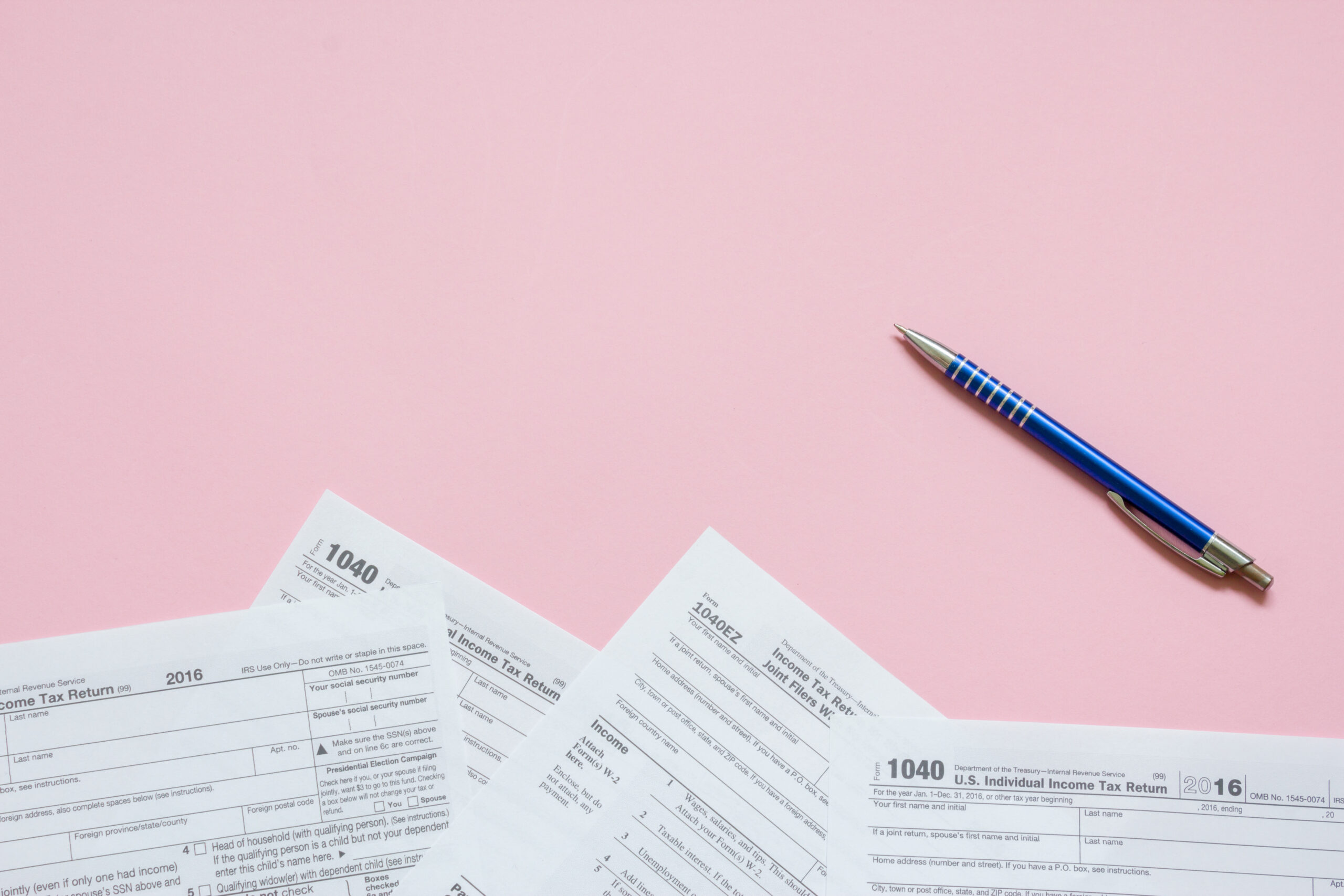
The 2025 Tax Survival Guide for Small Business Owners
Ah, tax season—the time of year that small business owners either feel either on top of the world or one IRS letter away from a panic attack. If you’re reading this, chances are you want to avoid the latter.
The good news? Taxes don’t have to be painful.
With the right approach—whether that’s handling them yourself or hiring a pro—you can reduce stress, save thousands, and keep more money in your pocket.
So, should you DIY your taxes or hire a professional? That depends on your business. Let’s break it down.
🔎 Quick Navigation: Choose Your Tax Strategy
✅ Doing Taxes Yourself? Jump to:
👉 How to Estimate & Plan Your Taxes
👉 1099s & Contractor Payments
👉 Top Deductions for DIY Filers
✅ Hiring a Pro? Jump to:
👉 Why a Tax Accountant Can Save You Money
👉 How Tax Pros Help With Growth & Strategy
✅ Not Sure? Start here 👇
1. DIY Taxes vs. Hiring a Pro: What’s Right for Your Business?
Should you handle taxes yourself, or is it time to bring in an expert? Here’s a quick way to decide.
If your business is small and simple, DIY might work just fine. If you’re growing fast or dealing with complex financial situations, a pro could save you from costly mistakes.
Option 1: DIY Taxes — When It Makes Sense
💡 Best for: New business owners, side hustlers, or businesses with very straightforward finances.
Doing your own taxes can be a great option if:
✔️ You’re a solopreneur or freelancer with simple income and expenses.
✔️ You feel comfortable using tax software like TurboTax, QuickBooks, or Xero.
✔️ You have time to track expenses and research deductions.
✔️ Your revenue is under $100K, and you don’t have employees or contractors.
For example: If you’re a freelance graphic designer making around $60K per year, filing your own taxes with QuickBooks might be completely manageable.
Option 2: When You Should Hire a Pro
💡 Best for: Growing businesses, business owners juggling multiple revenue streams, or anyone who wants to save time and avoid IRS headaches.
As your business grows, so do the tax complications. Here’s when to call in the experts:
✔️ You made over $100K and want to maximize deductions.
✔️ You hired contractors or employees (hello, 1099s and W-2s).
✔️ You’re unsure about sales tax, estimated payments, or write-offs.
✔️ You’re planning to scale, sell, or restructure your business.
✔️You want to LEGALLY reduce your tax bill through strategic planning.
For example: If you’re a consultant earning $250K+, switching from an LLC to an S-Corp could save you thousands—but you need a tax pro to set it up correctly.
But How Much Does a Tax Pro Cost?
On average:
- Basic tax prep for small businesses: $300–$1,000
- More complex returns (LLCs, S-Corps, multi-state taxes): $1,000–$5,000
- CFO-level tax strategy: Varies (but can save you tens of thousands in tax deductions).
And just a tip: The IRS can fine you 15% of every dollar you didn’t properly report on 1099s. If that makes you nervous, it’s time to call an accountant.
2. Your Tax Accountant Is Your Best Friend – Here’s Why (Best for those hiring a pro)
Think of a tax accountant as your financial bodyguard—their job is to keep you legal, save you money, and protect you from IRS nightmares.
What a Tax Accountant Does:
✔️ Find deductions that TurboTax might miss.
✔️ Make sure you’re IRS-compliant (no scary letters, please).
✔️ Help structure your business to legally minimize taxes.
✔️ Plan ahead so you don’t get a surprise tax bill in April.
✔️ Files your business taxes correctly and on time.
For example: One of my clients had a massive Kickstarter campaign and didn’t realize the tax implications. With the right strategy, we saved them over $25,000 before tax season even hit.
3. Avoid the April Tax Bill Surprise: Predict and Plan (Best for DIY-ers & planners)
Ever celebrated a record-breaking year, only to get slapped with a huge tax bill in April?
This happens all the time to small business owners, especially those who are experiencing their first truly profitable year.
The problem isn’t that they owe taxes—it’s that they didn’t plan ahead.
Luckily, it’s easier than you might think. With a simple formula, you can predict your tax liability, set aside enough money, and avoid any nasty surprises when tax season rolls around.
Run the numbers now so you’re not caught off guard!
How to Estimate Your Taxes:
1️⃣ Find your Net Income: Revenue – Expenses = Taxable Income
2️⃣ Estimate your tax rate:
> Sole Proprietor/LLC: ~25%
> S-Corp: ~20%
> C-Corp: ~21% (flat rate)
3️⃣ Set aside that percentage each month for taxes.
For example: If you expect to make $100,000, you should set aside $25,000 for taxes to avoid any April panic.
The reality is, if your business is making money, taxes will always be part of the equation—so why not plan for them?
4. 1099s & Contractor Payments: Don’t Overpay by Accident! (Best for DIY-ers & businesses with contractors)
The IRS is no stranger to tracking payments to independent contractors, and missing a filing can lead to hefty penalties — up to 15% of what you paid your contractor (ON TOP OF the amount you already paid them!)
It’s a mistake that blindsides small business owners every year—and it’s entirely preventable.
Let’s break down when you need to file, when you don’t, and how to avoid a January panic when 1099 deadlines roll around.
Who Needs a 1099?
DO FILE: You paid a contractor $600+ via check, ACH, or wire transfer.
DON’T FILE: You paid them via PayPal, Stripe, Square, Venmo, or credit card (those platforms file their own 1099s).
How to Avoid a 1099 Mess:
✔️ Before paying anyone, collect a W-9 form.
✔️ File 1099-NECs by January 31 (or pay fines).
✔️ Use QuickBooks to auto-file 1099s.
Pro Tip: If a contractor refuses to send a W-9, don’t pay them until they do!
5. Top Deductions You Might Be Missing (Great for DIY-ers & those with a tax pro)
The IRS isn’t going to send you a reminder to deduct your home office or track your business miles.
If you don’t claim these expenses, you’re essentially handing the IRS money that should have stayed in your business.
Here’s a painful truth: Every year, small business owners overpay on their taxes—not because they did anything wrong, but because they missed deductions they were entitled to.
In fact, one of the biggest mistakes small business owners make is thinking too small when it comes to deductions. They might write off office supplies or a new laptop, but forget about education expenses, industry memberships, or even a portion of their internet bill.
Over time, these overlooked deductions add up, and before you know it, you’ve paid thousands more in taxes than you actually owed.
Don’t leave money on the table; let’s go over the most commonly missed tax deductions so you can keep more of what you’ve earned.
Commonly Missed Write-Offs:
- Home office deduction (yes, even if you rent!).
- Business meals (50% deductible).
- Software & subscriptions (QuickBooks, Zoom, Canva).
- Professional development (courses, conferences, books).
- Mileage & travel (keep a log!).
For example: One of my clients saved $7,000+ just by tracking mileage properly. Small details = big savings!
Final Takeaway: Get Ahead of Tax Season Now
Taxes don’t have to be a last-minute scramble or a source of stress.
Whether you decide to handle them yourself or hire a pro, the key is planning ahead.
If you’re going the DIY route, make sure you’re tracking income, expenses, and potential deductions throughout the year.
If you’re working with an accountant, check in before year-end to strategize and minimize your tax bill.
No matter which path you take, setting aside money for taxes, staying on top of 1099 filings, and taking advantage of deductions will keep you in control of your finances.
The sooner you start, the smoother your tax season will be. And who doesn’t want to head into April with peace of mind?
(P.S. 🚀 Need expert tax strategy? Grab a FREE 45 minutes with me and let’s get you one.)

Pam Prior
Author, Virtual CFO, and Finance Coach
“Your First CFO: The Accounting Cure for Small Business Owners” on AMAZON
“Founder to Exit: A CFO’s Blueprint for Small Business Owners” on AMAZON
***Disclaimer: The information provided in this blog is for educational and informational purposes only and should not be considered legal, tax, or financial advice. Every business situation is unique, and tax laws change frequently. Before making any financial or tax-related decisions, you should consult with a qualified tax professional, accountant, or attorney to ensure compliance with current regulations and to determine the best course of action for your specific circumstances.





